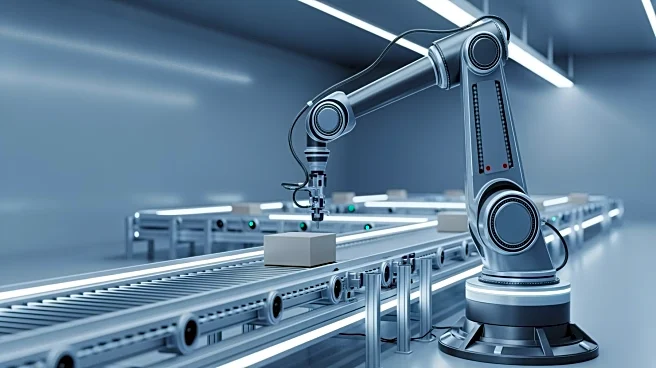What's Happening?
The resurgence of U.S.-China trade tensions has highlighted the critical need for agile supply chains. As tariffs are increasingly used as geopolitical tools, companies are under pressure to adapt quickly to changing trade policies. The current environment,
marked by instability and unpredictability, has driven businesses to prioritize automated supply chain orchestration. This approach integrates ordering, procurement, fulfillment, and invoicing processes, transforming fragmented operations into cohesive, agile ecosystems. The emphasis on automation and real-time visibility is seen as essential for maintaining customer trust and meeting market demands.
Why It's Important?
The renewed focus on automated supply chains is significant for several reasons. Firstly, it addresses the challenges posed by geopolitical tensions, such as the U.S.-China trade war, which can disrupt global trade flows. By investing in automation, companies can mitigate risks associated with tariffs and other trade barriers. Additionally, the integration of digital infrastructure helps overcome issues like skilled labor shortages and climate-related disruptions, which have historically strained supply chains. This shift not only enhances operational resilience but also positions companies to capitalize on emerging opportunities, thereby maintaining competitive advantage in a volatile market.
What's Next?
As companies continue to navigate the complexities of global trade, the adoption of automated supply chain solutions is expected to accelerate. Businesses that invest in these technologies will likely see improved operational efficiency and stronger market positions. Moreover, the ongoing geopolitical tensions may prompt further innovations in supply chain management, as companies seek to diversify their supplier networks and enhance real-time decision-making capabilities. The focus on agility and visibility will remain a priority, ensuring that businesses are better prepared for future disruptions.
Beyond the Headlines
The move towards automated supply chains also raises important ethical and cultural considerations. As companies increasingly rely on technology, there is a growing need to address the digital skills gap within the workforce. This shift necessitates investment in workforce training and development to ensure employees can effectively operate and manage new systems. Additionally, the emphasis on automation may lead to broader discussions about the role of technology in society and its impact on employment and economic inequality.















